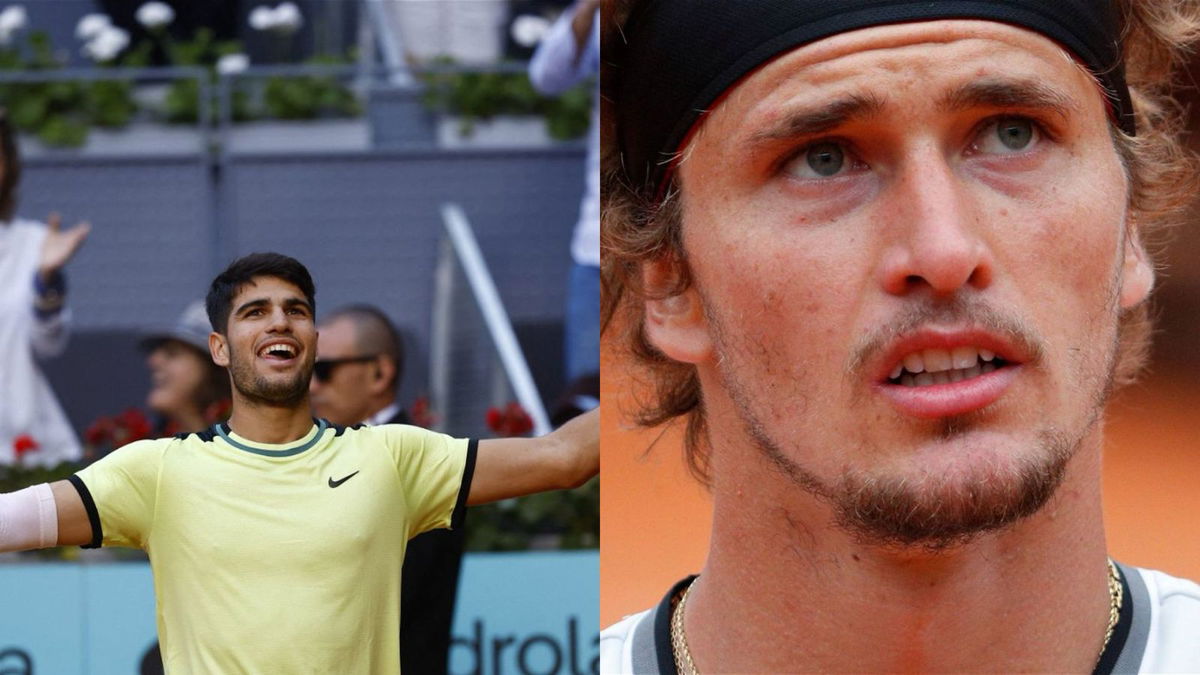
Imago
Image Credits: Imago

Imago
Image Credits: Imago
It’s rarely an exaggeration when people say that one point can change the trajectory of a tennis match. In the French Open final between Alexander Zverev and Carlos Alcaraz, that point came in the fifth set when Zverev had the chance to break Alcaraz’s momentum. And as it so happens, he did, only for it to be overruled by the chair umpire, adding another layer to the ever-evolving debate about having Hawk-Eye at Roland Garros.
Watch What’s Trending Now!
The 21-year-old, who’d breezed through the fourth set to take the match to a decider, broke Alexander Zverev early in the fifth. Considering how he’d stepped up his game, it seemed like the Spaniard was heading toward a third Grand Slam title. While that is what subsequently transpired–owing to a hard-fought 6-3, 2-6, 5-7, 6-1, 6-2 victory–the course of the fifth set could’ve been quite different.
After Carlos Alcaraz broke the 27-year-old to take a 2-1 lead, Zverev had chances to break him right back. When Alcaraz was serving at 15-40, he made a second serve that was called out by the linesperson. The scoreboard could’ve read 2-2 at that point. Instead, chair umpire Renaud Lichtenstein overruled the call. He got down from his chair, checked the mark, argued with Zverev, and eventually called for another second serve. It seemed like that was where the match truly turned in Alcaraz’s favor.
ADVERTISEMENT
While many may argue that the 15-40 second serve call couldn’t have possibly cost Alexander Zverev a chance to clinch the title, he (and others in the tennis community) believed it did. After all, the psychological mindset at 1-3 is quite different from that at 2-2. What’s more is that Hawk-Eye, a technology unavailable on-court at Roland Garros but accessible to the media, supported Zverev’s claims that the serve was, in fact, out – albeit by a mere 2mm.
Expressing frustration over that call, the German said in his post-match press conference, “There’s a difference whether you’re down 3-1 in the fifth set or you’re back to two-all. That’s a deciding difference. It’s frustrating in the end, but it is what it is. Umpires make mistakes. They’re also human, and that’s okay. But, of course, in a situation like that, you wish there wouldn’t be mistakes.” All this could be solved if the French Open just allowed the use of Hawk-Eye. In fact, the clay Masters this year featured the technology, which ensured calls like this didn’t happen.
ADVERTISEMENT
That said, Zverev was gracious in defeat. When it comes to Carlos Alcaraz, the 21-year-old’s triumph at the French Open not only secured him the title but also made him the youngest player ever to achieve Grand Slam victories on all three surfaces. Acknowledging the Spaniard’s win despite falling short of his first Grand Slam title, Zverev expressed his admiration for Alcaraz’s talent and reflected on his own determination to match the Spaniard’s level.
Wow, apparently that second serve from Alcaraz at *15-40 was 2 millimetres out to give Zverev the break back for 2-2. It’s now 3-1 Alcaraz.
HUGE mistake if true…
— Olly 🎾🇬🇧 (@Olly_Tennis_) June 9, 2024
ADVERTISEMENT
“We’re both physically strong, but he’s a beast. He’s an animal, for sure,” Zverev admitted. “The intensity he plays tennis at is different to other people. He can do so many different things, right? He’s a fantastic player, and physically, he’s fantastic. I have to look at myself and I have to look at the team I have and see what I can do to become at the same level.”
All said and done, almost everyone agreed that the umpire’s call came at a crucial point in the match – one that may have decided the eventual winner. Considering this, fans didn’t seem to side with Lichtenstein’s decision.
ADVERTISEMENT
The chair umpire “was wrong” to make the call in Carlos Alcaraz’s favor
A fan, slamming the official for his call in favor of Alcaraz, wrote, “The French Open Finals official/chairman is wasted.” Adding salt to the wound, Hawk-Eye data revealed Zverev’s objection to be valid–the serve was indeed a fault. This unfortunate call seemed to shift momentum in Alcaraz’s favor, as he held serve and ultimately emerged victorious after a grueling 4-hour, 19-minute battle.
Another stated exactly what happened: “To clarify, the lines person called it out, umpire came down and overruled the call. He was wrong and may cost Zverev the match.” The thing about overrules is that the chair umpire needs to be almost absolutely sure that the linesperson’s call was wrong. However, seeing how close the margin was in this case, there was only a slight probability that Lichtenstein would’ve been right. And at the end of the day, he wasn’t.
Top Stories
Roger Federer Draws Criticism from Swiss Government Chief for Tourism Boom in Country
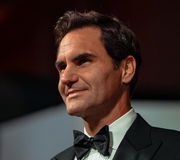
Stefanos Tsitsipas Considered Quitting Tennis After Major Personal Setback

Carlos Alcaraz Gets Harsh Reality Check After Father’s Reported Role in Juan Carlos Ferrero Split
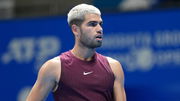
Naomi Osaka Reveals How Daughter Influenced Her First Loss of 2026
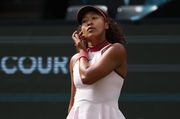
45-Year-Old Venus Williams Receives 2026 Australian Open Wildcard Entry
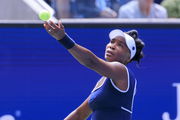
A dejected Zverev told reporters, “I heard at 2-1 the second serve was out. From the Hawk-Eye data, I saw that. I break back there, I have break chances, and then in the next service game, the fifth set can go the other way.” The German voiced what everyone was thinking. The worst part is that most viewers felt the serve was out right when Alcaraz hit it. Pointing that out, another commented, “Idk, the ball seemed out! gotta concede Zverev on this.”
ADVERTISEMENT
They weren’t the only ones to think so. An Alcaraz fan joined the conversation, too. “It seemed visibly out while watching the game live on TV. Then Hawk-Eye confirmed. This was a crucial point, and it would have gone 2-2. I am an Alcaraz fan, but this was disappointing, and I lost interest in the game after this. This is a problem that needs to be taken seriously!” The absence of Hawk-Eye at the French Open is indeed a problem. A similar case happened in 2021.
Zverev not happy with the umpire in the 5th set against Alcaraz at Roland Garros.
Break point down, Carlos hits a second serve that was called out.
The umpire overrules it.
The visual on tv says it was out by 2 mm.
Tough. pic.twitter.com/cofm3Pv7A0
— The Tennis Letter (@TheTennisLetter) June 9, 2024
During the women’s semifinal between Barbora Krejčíková and Maria Sakkari, the latter hit the ball out when Krejčíková had match point. The linesperson called it out, but the chair umpire overruled it. As in Zverev’s match, TV replays confirmed the ball was out. While things subsequently worked out in Krejčíková’s favor, they didn’t in Zverev’s. In light of this, a user wrote, “Zverev robbed of a break in the 5th. Why aren’t we using Hawk-Eye for calls?”
ADVERTISEMENT
At least fans can rest assured that Roland Garros and every other ATP tournament will have automatic line calling starting in 2025. But that didn’t take away from the fact that there were multiple controversial calls by umpires over the fortnight. Coco Gauff’s emotional French Open semifinal loss to Iga Swiatek reignited the debate about Virtual Referees (VR) in tennis. Following a disputed call by the umpire that left her in tears, Gauff passionately advocated for a system allowing players to challenge calls and umpires to watch replays and then make a decision.
As many in the tennis community united to voice their opinion favoring Zverev, the German held his spirits to regard his rival despite the disappointing setback. In fact, he’s already considering Carlos Alcaraz a Hall of Famer. The 21-year-old’s victory solidified his status as a great in the making. However, one can’t help but wonder what the outcome would’ve been had the call gone in favor of Alexander Zverev. What was your reaction to the call? Let us know in the comments!
ADVERTISEMENT
ADVERTISEMENT
ADVERTISEMENT

